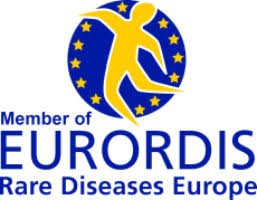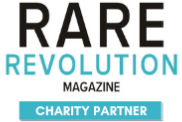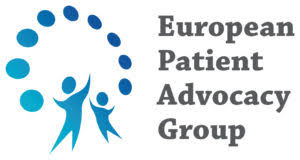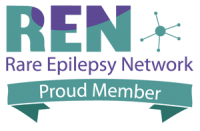Allison’s written a short introductory piece for the latest International Bureau for Epilepsy (IBE) quartely newsletter on behalf of the European Patient Advocacy Group (EPAG) that she co-chairs which forms part of EpiCARE, the European Reference Network (ERN) for rare and complex epilepsies.
Find out a little more about who’s who in the Patient Advocacy Group and what we do here:
Read the latest IBE newsletter
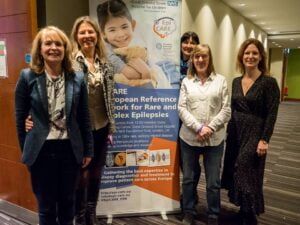
Allison adds:
Working alongside colleagues from different rare epilepsy patient organisations from across Europe is not only proving enlightening but also mutually beneficial. Of course the main focus of our group is to work together to put forward patient priorities for improvements in care and management of all the rare epilepsies to bring to the attention of the EpiCARE lead doctors and researchers; for r(20) this includes:
- raising awareness of r(20) syndrome – simply by my playing an active role in the group, doctors from across Europe are now talking about and considering r(20) more often when making diagnoses and discussing difficult to treat epilepsy cases in the monthly non-surgical virtual consulation sessions. We are hoping that Orphanet (the trusted website for rare disease information) will be updated for r(20) in the coming months too
- providing information on r(20) care and management – together with Prof Sameer Zuberi and Dr Nicola Specchio we are currently working on leaflets for both doctors and patient families, addressing frequently asked questions (FAQ’s) and important topics around treatment, patient care and safety aspects. r(20) has been chosen as a pilot ahead of the 130+ other rare epilepsies, with the idea that what we produce will form the standard for all the other leaflets to follow…
- increasing education on r(20) – in the pipeline we are planning a webinar hosed by Prof Zuberi on r(20) for doctors across Europe to learn more about the disease, how to diagnose and treat patients
- opportunities for research in r(20) – we are currently running a survey to identify how many r(20) patients are known to EpiCARE centres across Europe to determine the feasibility of a potential future observational study in use of Ketogenic Diet in r(20) patients. Should the numbers of r(20) patients be insufficient on their own, then we will look to include a wider cohort of patients with similar rare epilepsies.
- addressing the diagnostic challenges of r(20) – I’m currently liaising with the genetic leads to see what more can be done to increase awareness of the signs and symptoms of r(20) when diagnosing a patient with unknown cause for their seizures and the need to request a karyotype for chromosomal mosaicism to rule out r(20) – not part of standard genetic epilepsy testing, considered an older test that’s less frequently used but essential to diagnose mosaic cases of r(20)
- understanding how rare r(20) really is? – one of the key objectives of EpiCARE is to create a database of all rare epilepsy patients from across Europe to understand how many individuals there are with each disease and where those patients are located. Currently we cannot provide an estimate of how many rare r(20) actually is. These data can be used to contact patients to participate in future research and/or clinical trials, where appropriate – something previously unavailable to r(20) families! The database is a work in progress, but we hope to ramp this up in the coming months, as we’re currently working on a grant application for more funds from the EU to complete the database development.
These new partnerships are providing many other benefits for r(20) too including:
- understanding the similarities and differences of r(20) vs. other rare epilepsies – its been really interesting to learn about many other rare and complex epilepsies, how symptoms can vary, how these impact on patient’s lives, but it’s also useful to understand where we share symptoms and how they can best be managed
- discovering how other rare epilepsy patient organisations operate – learning from other more established patient support groups can tell us a lot about what works well, what to avoid and what’s possible. We talk about topics such as funding for our work, how to get involved in research and realtionships with industry (pharma companies). Learning from those who’ve ‘been there, done that and got the t-shirt” so to speak, saves reinventing the wheel and also creates opportunities for warm introductions to those who might be able to help us in our work
- finding opportunities to collaborate – even with the more ‘common’ rare epilepsies, they are often still comparitely rare and many of us would benefit from working together and combining our resources for mutual benefit. It’s been a great experience so far, building new relationships with the leaders of other groups – and importantly they’re all really lovely, normal people facing the same challenges as us!
It’s a lot of extra voluntary work on top of running our patient support group day-to-day; a number of hours every week has to be dedicated to calls, research and emails. However it is such rewarding work and I get to meet some really great, like-minded people who are either parents of someone with a rare disease (like me), or have a rare disease themselves. I even get opportunities to travel around Europe (in fact I’m writing this from my hotel room in Brussels).
We’re all in this together and that’s what makes it worthwhile 🙂


